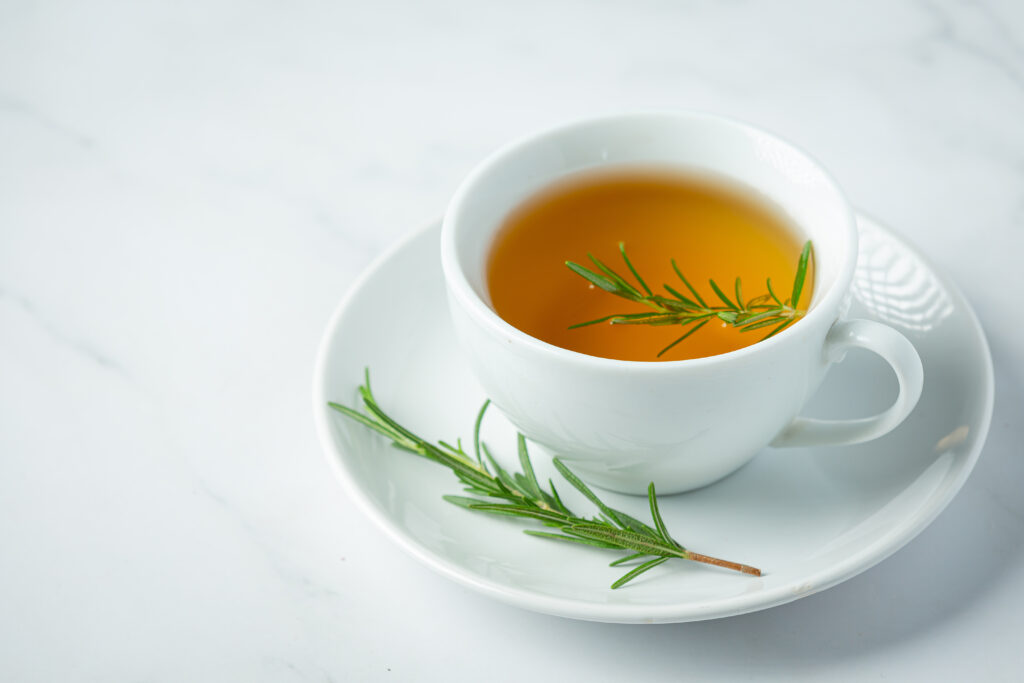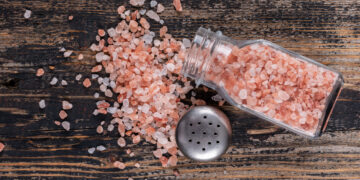In Morocco, rosemary (iklil in Arabic, azir in Amazigh) is far more than a kitchen spice. From the high slopes of the Rif to the fragrant hills of the Middle Atlas, rosemary grows wild, thriving in the Mediterranean sun. Moroccan grandmothers have brewed it in tea, infused it in olive oil, and burned it as incense for generations—long before modern science began confirming its powerful benefits for memory, mood, and brain health. Here are five science-backed ways rosemary supports mental wellness, plus a real-life Moroccan testimonial that shows tradition and research beautifully align.
What’s rosemary ?
Rosemary (Rosmarinus officinalis) is a fragrant evergreen herb native to the Mediterranean region. Known for its needle-like leaves and distinctive aroma, it has been valued for centuries in cooking, traditional medicine, and even spiritual rituals.
Beyond adding flavor to dishes, rosemary is celebrated for its potential health benefits—from boosting memory and reducing anxiety to supporting digestion and overall wellness.
Why rosemary supports mental wellness
Here’s five science-backed ways rosemary supports mental wellness, plus a real-life Moroccan testimonial that shows tradition and research beautifully align.
1. A Herb of Memory, from Fez to the Atlas
In Moroccan tradition, rosemary has long been associated with clarity and remembrance. In some Amazigh villages, sprigs of fresh rosemary are placed in homes to purify the air and lift the spirit. Science now supports this: studies show that rosemary’s aroma can improve memory performance and alertness, and may even enhance recall during stressful moments.
2. Calming Anxiety the Natural Way
Rosemary tea is a common evening drink in parts of Morocco, often mixed with mint or verbena. Beyond its refreshing taste, research shows rosemary reduces cortisol—the stress hormone—and promotes better sleep. For Moroccans living in busy cities like Casablanca or Marrakesh, this can be a natural tool for reducing daily anxiety without relying on synthetic medication.
3. Protecting the Brain with Powerful Antioxidants
Rosemary contains compounds like carnosic acid and rosmarinic acid, which act as antioxidants and anti-inflammatories. These help shield brain cells from oxidative stress, a factor linked to Alzheimer’s disease. In Morocco’s herbalist markets (attarin), rosemary is often recommended for “strengthening the head” and “keeping the mind fresh” — a traditional way of describing neuroprotection.
4. Breakthrough Research: diAcCA and Alzheimer’s Hope
In 2025, scientists discovered diAcCA, a stable form of carnosic acid, which in lab tests improved memory and reduced Alzheimer’s markers in brain cells. While this treatment is still experimental, it resonates deeply in Morocco, where family care for elderly relatives is central to life. The idea that a plant already used in Moroccan kitchens could inspire new Alzheimer’s treatments feels both exciting and familiar.
5. Everyday Health Benefits Beyond the Brain
In Morocco, rosemary is used in slow-cooked lamb dishes, fish marinades, and as a seasoning for roasted vegetables. It also aids digestion, making it a natural after-meal tea. Its antimicrobial qualities have even been harnessed in traditional hammams, where rosemary-infused water is poured over the skin for its cleansing and invigorating effects.
Hiking Trails in the Middle Atlas Mountains
The Middle Atlas Mountains are often overshadowed by the High Atlas or the Rif, yet they hold some of Morocco’s...
From Passion to Profession: Turning Creative Skills into Income
In Morocco, more young people are transforming their creative talents into careers. Whether it’s photography, calligraphy, fashion design, or digital...
Young Moroccans Abroad: Balancing Wanderlust and Roots
For many young Moroccans, the dream of exploring the world is irresistible. Whether through study, work, or travel, living abroad...
Networking for Millennials: How to Build Real Connections in Casablanca and Rabat
In Morocco’s fast-paced urban centers, especially Casablanca and Rabat, networking is essential for millennials seeking growth and opportunities. No longer...
Testimonial from Hajar
“I grew up in Chefchaouen, surrounded by the smell of wild rosemary. My grandmother would make us drink rosemary tea during exam weeks, saying it would ‘open the mind.’ At the time, I thought it was just an old belief. But now, as a teacher, I keep a pot of rosemary in my classroom. When my students feel stressed before tests, I let them smell the fresh sprigs. They laugh, but they also tell me it makes them feel calmer and more focused. It’s a piece of home and a touch of science in one.”
— Hajar El-Mansouri, Secondary School Teacher, Tangier

How to Use Rosemary the Moroccan Way
In tea: Steep fresh rosemary sprigs in boiling water for 5–7 minutes. Combine with mint for a refreshing twist.
In cooking: Add to tagines, grilled fish, or roast lamb for aroma and flavor.
In aromatherapy: Burn dried rosemary as incense or keep fresh sprigs near your desk for a natural concentration boost.
As an infusion: Place sprigs in warm olive oil for 2–3 weeks, then use as a healthful cooking oil or massage oil.

A Tradition with a Future
In Morocco, rosemary is not a trend—it’s part of daily life. What’s remarkable is how closely tradition aligns with emerging research. From improving memory and calming anxiety to potentially protecting against Alzheimer’s, rosemary is proving to be both a cultural treasure and a scientific marvel.
Whether sipped in a mountain village or tested in a high-tech lab, rosemary carries the same promise: a sharper mind, a calmer spirit, and a bridge between the wisdom of the past and the innovations of the future.
















Discussion about this post